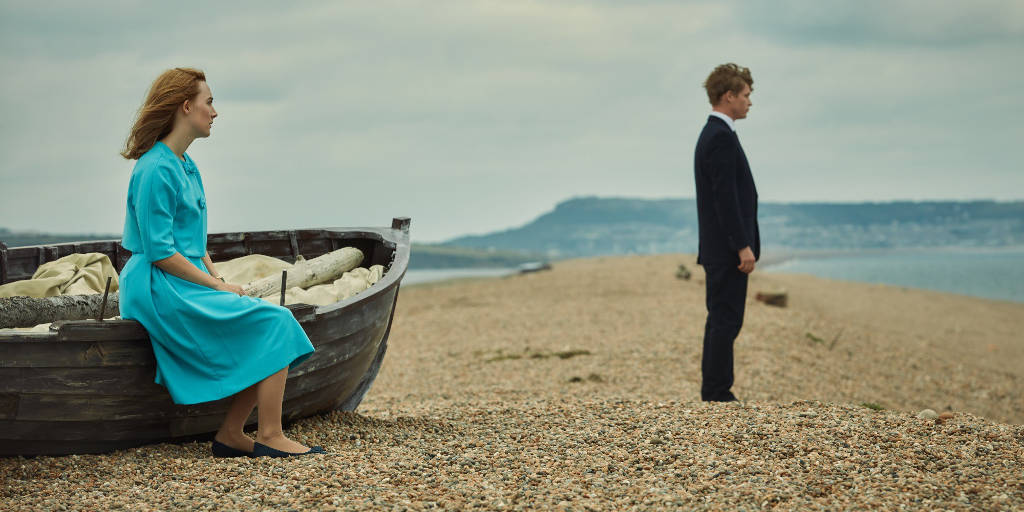TIFF Review: An adaptation of Ian McEwan's On Chesil Beach
 CREDIT: NUMBER 9 FILMS/ BBC FILMS
CREDIT: NUMBER 9 FILMS/ BBC FILMSOn Chesil Beach, an adaptation of Ian McEwan's novel of the same name, was showcased at the 2017 Toronto International Film Festival (TIFF)
Toronto (CUP) — Having read Ian McEwan's On Chesil Beach, it would be hard to imagine how the unsettling subject matter of the novel could be accurately adapted into film. It is fair to say, however, that director Dominic Cooke beautifully translated what may have been perceived as a story of two shallow teenagers into an ode to thwarted desire.
Set in 1962, the film follows Edward (Billy Howle) and Florence (Saoirse Ronan) in the first hours of their honeymoon on the seaside. Florence is a disciplined violinist, the product of a strict middle-class upbringing. Throughout the film, flashbacks show a rigid household run by her mother crushing all impulse with propriety. Edward offers Florence freedom. The two arrive at the beach house seemingly in love and eager to begin their life together, but desperately ill equipped for their first night. They perform the social rituals of dinner and polite conversation until there is no recourse left—evident that they do not know what to do next. On Chesil Beach reaches its climax through failed consummation.
In the last half hour, the film falls into a series of revelations regarding unspoken expectations, unreasonable anxieties, and impossible requests that hint at the consequences of parental control. During the post-screening Q&A at the TIFF premiere, Ian McEwan addressed just how far the couple had fallen into their own narratives. Because of their drastically opposing yet similarly repressive mothers, the couple shapes two radically different narratives of what the purpose of marriage really is. For Florence, a woman must marry so she can be free to do what she wants without ridicule. For Edward, you must marry to have sex. As they confront the truth on the cloudy English beach, these narratives are challenged as they realize there's more to their marriage than idealisation. Six hours into their marriage and one failed attempt at sex later, the pair see no other option but to go their separate ways.
Yet, as the film pans out into a shot of Edward gazing after Florence's retreating figure, there is a definite feeling of dissatisfaction. A happy ending is not in sight, but it is hard to pin down the film's true meaning. As a novel, the story makes sense as the reader decides whether this is a story of regret or a mere consequence of a formulaic love story. However, the film added two unrealistic epilogues set decades later. The purpose of these shots seems to be to tell the audience that the pair regrets their actions and knows where it all went wrong. However, these shots make the feelings of the characters too revealing, and eliminate the deep and tragic questioning which made McEwan's novel so unique.
As a cinematic experience, the movie was captivating and gripped the audience with an unsettling yet realistic reflection of a repressive time period. As well, it posed the question of whether or not love can really save a couple that is doomed from the start, simply because of the age they live in. What the film does extraordinarily well is allow the audience to feel tension between the couple, without placing the blame on either of them, as they work themselves into a volcanic state, fumbling to express their true feelings. The audience feels extreme pity for what may have been a beautiful love story, if only it were set in modern day. On Chesil Beach, although failing to present a strong case for lost-love and regret, manages to leave a residing appreciation for our generation.














